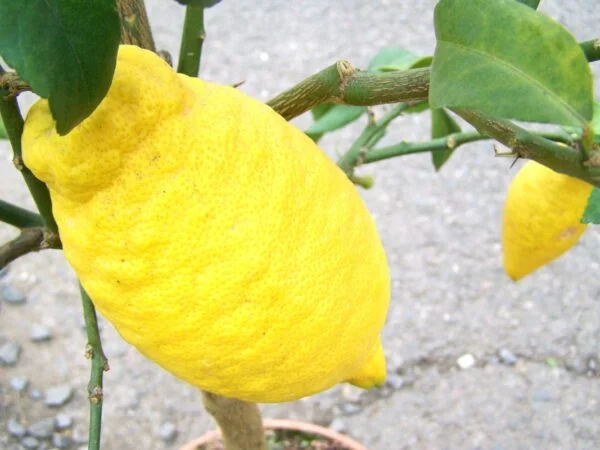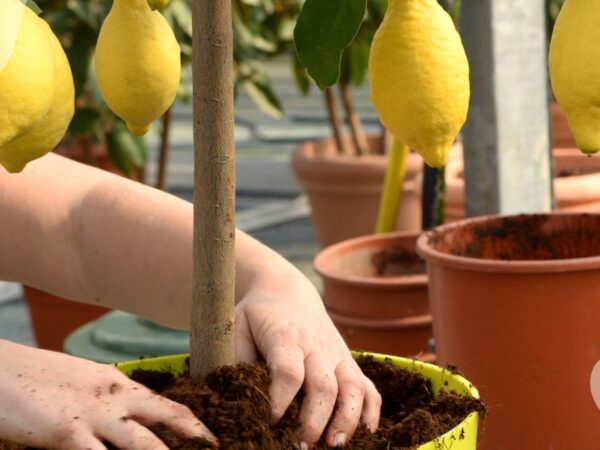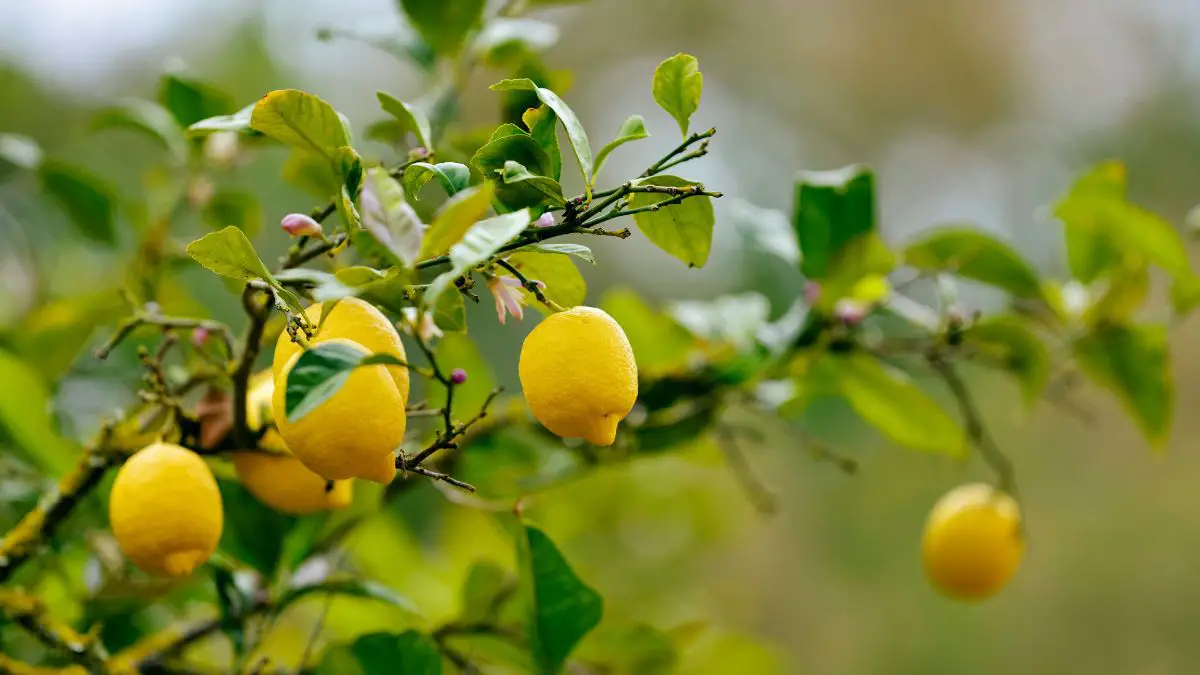
When to feed lemon trees depends on various factors such as soil quality, weather conditions, and tree age. Understanding the optimal feeding schedule is crucial for ensuring healthy growth and abundant fruit production. As an expert in citrus cultivation, I can guide you through the best practices for feeding your lemon trees to maximize their potential.
Lemon trees thrive when fed with a balanced fertilizer containing nitrogen, phosphorus, and potassium. For young trees, feeding should occur every 4-6 weeks during the growing season, typically from spring to fall. Mature trees benefit from fertilizer applications three times a year, in early spring, late spring, and early fall. However, it's essential to monitor soil nutrient levels and adjust the feeding schedule accordingly. Additionally, incorporating organic matter into the soil can improve overall tree health and fruit quality. By following these guidelines, you can ensure your lemon trees receive the nourishment they need to flourish.
For further insights on optimizing lemon tree care, including pruning techniques, pest management strategies, and tips for enhancing fruit flavor, explore our comprehensive citrus cultivation resources. Whether you're a seasoned gardener or a novice citrus enthusiast, there's always more to discover about nurturing vibrant lemon trees.
Key Takeaways
- Understand Lemon Trees: Knowing the basics of lemon tree care is essential for their health and productivity.
- Timing is Key: Fertilize lemon trees during their active growth periods for optimal results.
- Proper Fertilization Techniques: Use balanced fertilizers and apply them evenly around the tree's drip line.
- Promote Healthy Growth: Regular fertilization and proper care contribute to vigorous lemon tree growth.
- Optimize Nutrient Absorption: Watering before and after fertilization helps nutrients reach the roots effectively.
- Avoid Common Mistakes: Overfertilization can harm lemon trees, so follow recommended guidelines closely.
Understanding Lemon Trees
Growth Cycle
Lemon trees go through distinct growth stages: germination, seedling, sapling, and mature tree. They are most active during the spring and summer months. Adjust feeding schedules based on these growth cycles to support optimal development.
Nutrient Needs
Essential nutrients for lemon trees include nitrogen, phosphorus, and potassium. Deficiencies in these nutrients can lead to issues like yellowing leaves or stunted growth. Fertilizers play a crucial role in providing these essential nutrients to lemon trees.
Common Varieties
Popular lemon tree varieties include Eureka, Lisbon, and Meyer lemons. Each variety has unique characteristics in terms of fruit size, flavor, and cold tolerance. Factors like climate, space availability, and desired fruit attributes should be considered when selecting a lemon tree variety.
Signs of Nutrient Deficiencies
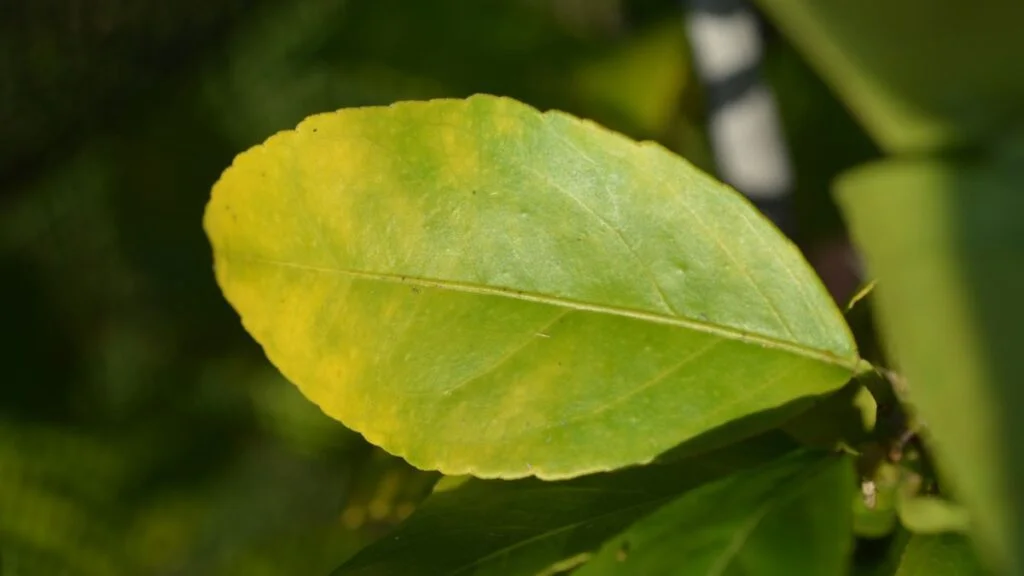
Yellowing Leaves
Yellowing leaves in lemon trees indicate potential nutrient deficiencies or other issues. Monitor the color changes closely. Understand that yellowing can be due to lack of nutrients like nitrogen, iron, or magnesium. Address deficiencies promptly. Implement solutions such as fertilizing with a balanced citrus-specific fertilizer to restore leaf color and health.
Stunted Growth
Recognize stunted growth through small or underdeveloped leaves in lemon trees. Investigate possible causes like poor soil conditions or inadequate sunlight exposure. Promote healthy growth by ensuring proper watering, adequate sunlight, and well-draining soil. Consider pruning to encourage new growth and remove diseased branches.
Leaf Drop
Leaf dropping in lemon trees may result from environmental stressors like overwatering or underwatering. Evaluate watering practices to prevent excessive leaf shedding. Identify factors like pests, diseases, or extreme temperatures that could lead to leaf drop. Take measures to control pests and diseases effectively. Implement preventive strategies such as adjusting watering schedules, maintaining proper humidity levels, and providing adequate sunlight for optimal tree health.
Best Timing for Fertilization
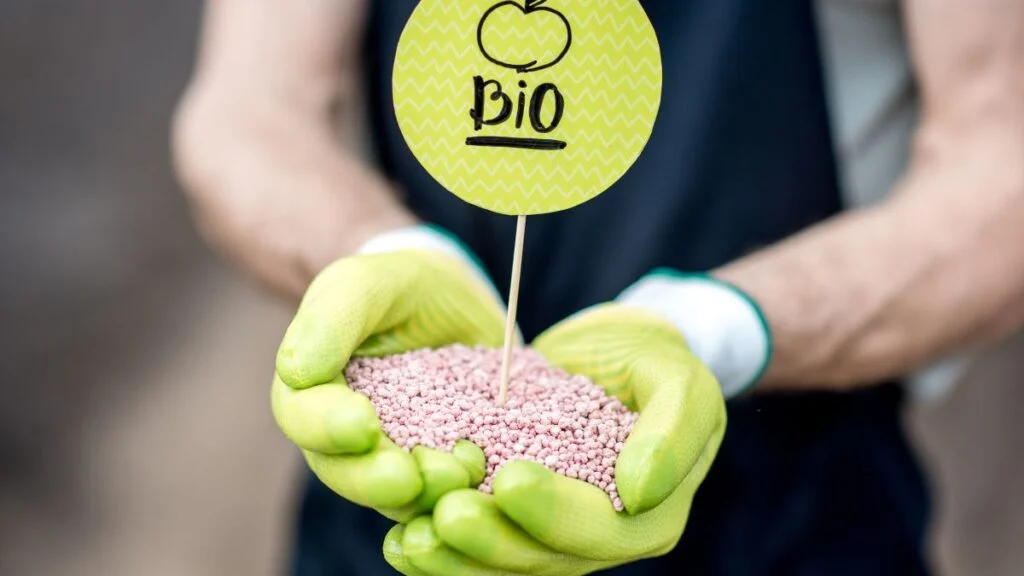
Seasonal Guide
Spring Feeding
Lemon trees benefit significantly from spring feeding to support new growth and fruit development. Proper spring feeding enhances tree vigor and resilience against pests and diseases. By following correct feeding techniques in spring, you can promote healthy foliage and abundant fruit production.
Summer Care
During summer, lemon trees require specific care due to the challenges posed by hot weather. Providing adequate water and protection from intense sunlight is crucial for summer care. Implementing strategies such as mulching and regular watering ensures optimal growth and prevents stress on the trees.
Winter Preparation
Preparing lemon trees for winter is essential to safeguard them from cold temperatures. Winter care practices involve insulating the tree's roots and protecting them from frost. By implementing these measures, you can maintain tree health during the dormant winter period.
Lifecycle Stages
Understanding the different stages in a lemon tree's lifecycle is vital for effective care. Adjusting care practices based on tree maturity ensures optimal growth and fruit production. Each lifecycle stage of a lemon tree comes with unique needs that require specific attention to support overall health.
Proper Fertilization Techniques
Soil Testing
l testing for lemon trees is crucial to determine nutrient deficiencies and pH levels accurately. Understanding soil composition directly impacts the tree's health and growth. By conducting soil tests regularly, you can adjust fertilization to optimize nutrient availability effectively.
Organic vs Synthetic
Comparing organic and synthetic fertilizers helps in choosing the best option for lemon trees. Organic fertilizers promote long-term soil health and microbial activity, benefiting tree growth sustainably. On the other hand, synthetic fertilizers provide quick nutrient uptake but may have environmental repercussions. Consider your priorities and goals to select the most suitable fertilizer type.
Application Methods
Exploring various application methods ensures effective fertilization of lemon trees. Surface broadcasting spreads nutrients evenly but may require more frequent applications. Deep root feeding targets the roots directly, ensuring efficient nutrient absorption but needs specialized equipment. Choose an application method that aligns with your tree's requirements and your convenience.
Promoting Healthy Growth
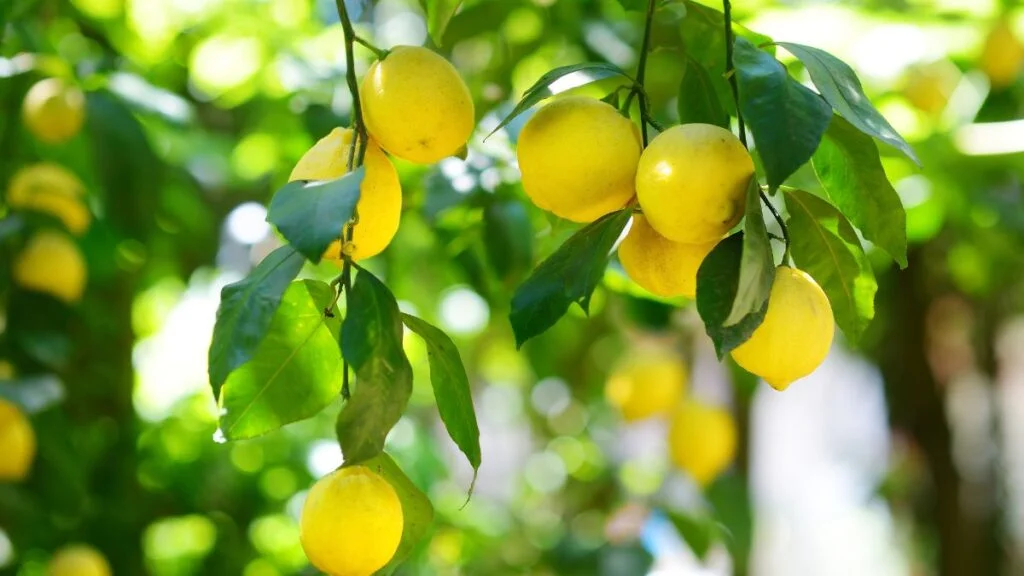
Watering Practices
Proper watering is crucial for lemon trees to thrive. Overwatering can lead to root rot and other diseases, while underwatering causes stress. Establish a watering schedule based on the tree's needs.
Understanding the moisture requirements of lemon trees is essential. Implement a watering routine that keeps the soil consistently moist but not waterlogged. Avoid letting the soil dry out completely between watering sessions.
Sunlight Exposure
Sunlight plays a vital role in the growth of lemon trees. Ensure your tree receives adequate sunlight for at least 6-8 hours daily. Position the tree in a spot where it can receive direct sunlight without obstruction.
Optimizing sunlight exposure involves placing the tree in a location with maximum sun exposure throughout the day. Consider trimming nearby branches or structures that may block sunlight from reaching all parts of the tree, especially the lower branches.
Pruning Tips
Pruning is beneficial for maintaining the health and productivity of lemon trees. Regular pruning helps in removing dead or diseased branches, promoting air circulation, and shaping the tree for better fruit production.
When pruning lemon trees, focus on removing any crossing or crowded branches to allow sufficient airflow within the canopy. Trim back any excessive growth to maintain an open and balanced structure that supports fruit development.
Optimal Nutrient Absorption
pH Levels
Maintaining optimal pH levels in the soil is crucial for lemon trees to thrive. The acidity or alkalinity of the soil directly impacts the tree's ability to absorb essential nutrients efficiently. By ensuring the soil pH is within the ideal range, you can enhance nutrient availability for the trees.
To adjust the pH levels, consider conducting a soil test to determine the current status. Based on the results, you can then take appropriate measures to modify the pH as needed. Adding organic matter or specific amendments can help regulate the pH and create a favorable environment for nutrient uptake by lemon trees.
Root Health
Root health plays a significant role in sustaining overall tree well-being, including lemon trees. Healthy roots are essential for nutrient absorption, water uptake, and structural support for the tree. It is vital to monitor root health regularly to ensure optimal growth and productivity of lemon trees.
Identifying signs of root issues, such as yellowing leaves, stunted growth, or wilting foliage, can indicate underlying problems affecting root health. Implementing proper root care practices, including regular watering, mulching, and avoiding compacted soil around the roots, can promote robust root systems and support the vitality of lemon trees.
Avoiding Common Mistakes
Over-Fertilizing
To prevent over-fertilizing lemon trees, be aware of the risks it poses. Excessive fertilizer can harm tree roots and hinder nutrient absorption. Implement a balanced fertilization schedule to maintain tree health.
Avoid the negative effects of excessive fertilizer application by understanding how it can lead to root burn and stunted growth in lemon trees. Monitor soil nutrients regularly to adjust fertilization accordingly.
Prevent over-fertilization by using slow-release fertilizers and following recommended dosage instructions. This helps avoid nutrient imbalances and promotes steady growth in lemon trees.
Incorrect Timing
Feeding lemon trees at the wrong times can have detrimental effects on their health. Understand that timing plays a crucial role in nutrient absorption and overall tree growth. Align your feeding schedule with the tree's natural cycles for optimal results.
Timing affects nutrient absorption significantly, impacting the tree's ability to utilize essential nutrients for growth and fruit production. Feed your lemon trees during active growth periods to maximize nutrient uptake.
Implement a feeding schedule that considers the tree's natural cycles, such as blooming and fruiting seasons. This ensures that the tree receives nutrients when it needs them most, promoting healthy growth and abundant fruit production.
Advanced Care Tips
Pest Management
Lemon trees are susceptible to common pests such as aphids, scale insects, and citrus leaf miners. These pests can cause significant damage by sucking sap from the leaves and stems, leading to stunted growth and yellowing foliage. To spot infestations, check for sticky honeydew residue on leaves, distorted growth, or tiny holes in the foliage.
Implement pest control measures like introducing natural predators such as ladybugs or lacewings to keep pest populations in check. Alternatively, use horticultural oils or insecticidal soaps to combat infestations effectively without harming beneficial insects.
Disease Prevention
Common diseases that affect lemon trees include citrus canker, root rot, and citrus greening disease. Symptoms like leaf spots, yellowing leaves, or stunted growth indicate a potential disease issue. To prevent diseases, ensure proper water drainage to avoid waterlogged soil which can lead to root rot.
Implement preventive measures like pruning infected branches, sanitizing pruning tools between cuts, and applying copper-based fungicides to protect against fungal diseases. Regularly inspect your lemon tree for any signs of disease and promptly address them to maintain tree health.
Seasonal Maintenance Checklist
Spring Tasks
Spring tasks for lemon trees are crucial for promoting growth and fruiting. These tasks include pruning, fertilizing, and monitoring for pests. By implementing these practices, you can ensure optimal health for your lemon tree during the growing season.
Summer Tasks
During summer, it is essential to focus on maintaining tree resilience. Tasks such as regular watering, pest control, and providing adequate sunlight are vital. By addressing these aspects, you can help your lemon tree thrive in the warm weather conditions.
Fall Tasks
Fall is the time to prepare lemon trees for winter dormancy. Completing tasks like reducing watering frequency and protecting the tree from cold drafts is crucial. These preparations are essential to ensure survival and health during the colder months.
Winter Tasks
Winter care practices for lemon trees involve protecting them from cold weather conditions. Strategies such as mulching, covering the tree, and bringing potted trees indoors are important. By implementing these measures, you can safeguard your lemon tree from frost and freezing temperatures.
Closing Thoughts
Ensuring your lemon trees receive the right nutrients at the correct times is vital for their health and productivity. By understanding their needs, recognizing deficiencies, and following proper fertilization techniques, you can promote robust growth and bountiful fruit production. Remember to avoid common mistakes and implement advanced care tips to maintain optimal health throughout the year.
Now that you have a comprehensive seasonal maintenance checklist, take action to provide your lemon trees with the care they deserve. Share these insights with fellow gardeners to help them nurture their citrus plants effectively. Your commitment to proper fertilization and maintenance will not only benefit your lemon trees but also enrich your gardening experience. Keep up the excellent work!
Frequently Asked Questions
When is the best time to fertilize lemon trees?
The best time to fertilize lemon trees is in late winter or early spring before new growth starts. This timing helps provide essential nutrients for healthy growth and fruit production throughout the growing season.
How can I promote healthy growth in my lemon tree?
To promote healthy growth in your lemon tree, ensure it receives adequate sunlight, water consistently, prune to remove dead branches, and feed with a balanced fertilizer. Monitoring for pests and diseases regularly also contributes to overall health.
What are the signs of nutrient deficiencies in lemon trees?
Signs of nutrient deficiencies in lemon trees include yellowing leaves, stunted growth, leaf drop, and poor fruit development. Identifying specific symptoms can help determine which nutrients are lacking and address the issue promptly through proper fertilization.
How can I optimize nutrient absorption in my lemon tree?
Optimizing nutrient absorption in your lemon tree involves ensuring proper soil pH levels, avoiding over-fertilization, using organic matter to improve soil structure, and applying fertilizers at the right times. These practices enhance the plant's ability to take up essential nutrients efficiently.
What are some common mistakes to avoid when caring for lemon trees?
Common mistakes to avoid when caring for lemon trees include overwatering, using excessive amounts of fertilizer, neglecting pest control measures, pruning incorrectly, and planting in unsuitable locations. By being mindful of these factors, you can maintain the health and vigor of your lemon tree.
Image Source: Paid image from CANVA

